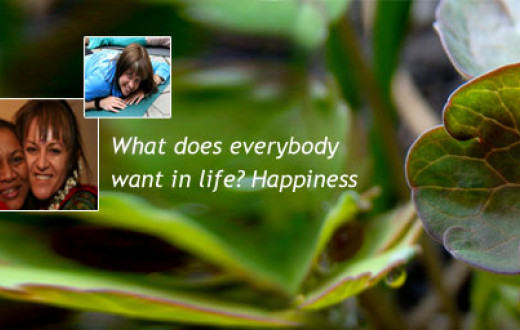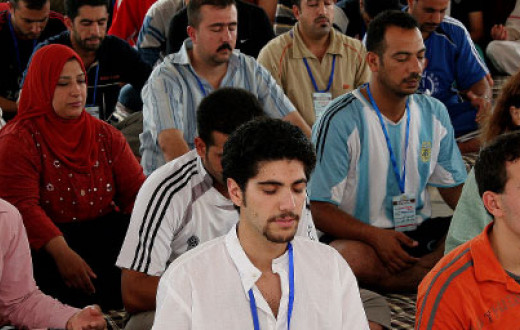Patanjali Yoga Sutra Knowledge Sheet 58
Contd. from knowledge sheet 57
“Sati mule tadvipako jaty ayur bhogaha” (II Sutra 13)
sati = if existing; mule = root; tad = its; vipako = ripening; jati = the body into which you are born; ayuhu = life-time; bhogaha = experience
“If the roots of karma are existing, they ripen and result in the body into which you are born and the fruits of the karma are experiences throughout the lifetime.”
Patanjali explains more about the genesis, how we gain our birth. Jati means in which body you are coming, where you are born. You are born as a chicken, monkey, human male or female. Your birth is determined. The length of your life is determined. What you will get in your life, your enjoyment, the miseries, are also determined. Why is someone born in Ethiopia and someone else born in Switzerland? Is there any explanation?
Patanjali has. He gives an insight into it. This is the usual question asked, “Why so and so is born there and so and so is born somewhere else? Why so and so is miserable? Why so and so has so much suffering?” This is a big question. No logic can give you any understanding or explanation.
He says, because of your past karmas. Jatyayur bhogo. It comes to you in different forms. When a person, dying with all the memories of only chicken, chicken and chicken, in his consciousness, the strongest impression at that time was that of the chicken. So he comes into the poultry farm. His mind’s impression gets him into that.
Whatever is the strongest impression in the mind, that persists. It is simple, very simple. You try this in the night. In the night, right before going to bed, just have a thought. Think very strongly about something. As soon as you get up in the morning, that will be your first thought. The same thought will also come up in the dream. If you practice this say for two months, three months, four months, six months, you will assume those qualities in you.
As soon as you wake up, say, "I should shake my head like a dog", and just do it. In six months, you will see that it will become out of your control. It becomes almost impossible for you not to do it. It gains such a pattern inside you because that karma, that impression has become so strong.
You say, “I should kick my leg like a dog”, or stick your tongue outside like a dog, and in six months, it becomes such a pattern in you. Or, if you keep watching a dog, it will come into your mind all the time, again and again, over and over, and when you die, your mind, your consciousness gets sucked into that type of body. The last days of your life are much more important than your whole life itself.
To emphasize this, in India there are many stories. An old man is on his death bed and is so attached to his children. In India, they even name their children after the name of God. There is a story about king Ajamila. Have you heard about that? Ajamila was a king. He was an atheist until his death. If it were possible, he would have been an atheist even after his death, but that was not possible! At the last moment, when he was dying, he called out “Narayana Narayana”. His son’s name was also Narayana while at the same time, he was taking the Lord’s name, Narayana, Narayana. It seems that God thought that he was being called and so Lord Narayana came and liberated him. This is a story. Ajamila called the name just by mistake. He took the name of God. So he became liberated. It is an extreme way to say that the last impression carries much weight, in spite of whatever one does in their whole life.
There is a similar story about a saint, a very enlightened rishi who was on the bank of a river in meditation. He saw a young deer, a baby deer in the flood water. So he jumped into the water and like any one would have done, he saved the deer and bandaged it. The deer had hurt its leg. He took care of the deer. He got so attached to it that when he died, he became a deer in the next birth! This is the only instance where an enlightened person became an animal.
It is said that it is almost impossible for a liberated man to be driven back into an animal body. This is one of the impossibilities. This example Jadabharat is quoted throughout just to tell you that the last impression is the most important. The sage became a deer.
Same thing when children go to bed in the night after watching some horror movie, they get nightmares. They cry, shout and do all sorts of things, isn’t it? How do you get rid of this?
“Te hlada paritapa phalaha punya apunya hetutvat” (II Sutra 14)
te = they; hlada = pleasure; paritapa = pain; phalaha = fruits; punya = virtue; apunya = vices; hetu = reason
“They give you pleasure and pain as the fruits of virtues and vices.”
These impressions, when they are good, they bring you more joy, more happiness and if these impressions are not good, they give you suffering. It depends on the merit or demerit that you have done. If you have done a good karma, that good karma accumulates and brings you joy.
If anybody is happy, that is because they have done some good karmas in the past. If they are miserable, then they have done something miserable karmas in the past. So, here he connects every happiness and misery to some act of the past, to your karma bank.
So, meditation is the way out of all that. You are just washing out everything. Then there is nothing. You become so hollow and empty and you sing and dance and you do all these things. To thin down all that is laid on the self. This is very precious.
Sometimes when you are sitting, you get bored. Never mind. You are just burning some old seeds of boredom. If you are averse to boredom, then the boredom will never leave you. If you are bored being with yourself, then how much boring you are to somebody else? So, even if it is boring, never mind. Know that this is tapas, this is your karma. Boredom decreases. Just take this as, “Willingly I’m going to do this. I will do this. Let me see. How can something put me off?” Take a challenge. You often take up challenges. Now take up a challenge and say, “Let me see this.” This is the way to get over your boredom. Kindle the challenge in you that “I will do this. Yes. Challenge!” All these can help you.
<<As You Sow, So Shall You Reap Eliminating the Cause of Pain >>
(This is part of a series of knowledge sheets based on Gurudev Sri Sri Ravi Shankar's commentaries on Patanjali Yoga Sutras.)
































